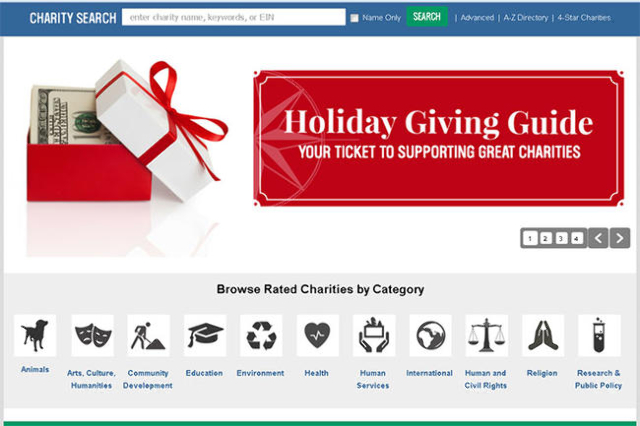Don’t be scammed; give wisely

If you are a regular reader of this column you already know that one of my ongoing concerns is that any money you give to nonprofits be used for the best purpose.
If you’re like me, you don’t want your charitable donations used to pay excessive salaries or excessive fundraising by telemarketers. You want the bulk to go to the programs.
For years I’ve advised people to check the charities they support either by looking them up on Guidestar.org or checking them on charitynavigator.org.
Both are free.
Guidestar will show you the Internal Revenue Service’s 990s, so you can see for yourself what the salaries are and judge for yourself whether salaries are too high, too low or just about right. You can read what their programs do and how many benefit from them. it’s a wealth of information, but takes some effort to understand.
Charitynavigator.org is easier. It gives a star rating and explains how much is going to programming, and evaluates transparency. It breaks down the administrative expenses, fundraising expenses, programming expenses and even shows other better-rated nonprofits.
A third worthwhile rating service is CharityWatch, but unlike the other two, you must pay $50 to join.
CharityWatch, founded more than 20 years ago by the American Institute of Philanthropy, does more than rate. It investigates abuses.
Try not to be scammed when you are doing your due diligence. I’ve come across plenty of supposed charity rating operations which look iffy. The three I mention here are trustworthy, and I rarely put my reputation on the line to say that.
In almost every talk, I tell people to check their charities on these websites. (I also advise them to check their doctors for disciplinary actions or malpractice settlements on the Nevada State Board of Medical Examiners website at medboard.nv.gov. But that’s a separate consumer issue.)
Periodically, newspapers do in-depth stories. The most recent one to catch my eye was in the Christian Science Monitor, which examined the 50 largest U.S. charities ranked by total income. Unfortunately, you have to subscribe online to check out all 50. I checked the list to see which ones received only two out of four stars and saw Habitat for Humanity International was a two-star, along with World Vision and the American Cancer Society.
The lowest ratings by CharityWatch, which was anything below B in my opinion, went to Easter Seals, Food for the Poor, the American Cancer Society, the YWCA (which was downgraded because of the large amounts of unused assets), the American Heart Association, AmeriCares, Feed the Children (which got a D), Catholic Medical Mission Board, Boys Town, and the Wounded Warrior Project.
Personally, I won’t give to anything that rates below a B by CharityWatch or is fewer than three stars by Charity Navigator.
Yet some of the lower-rated nonprofits listed above show up routinely in the obits as suggested places for memorial donations. When dealing with a dear one’s death, it seems like one more burden to check out a charity’s worthiness. Yet it might be worth it.
I still remember what philanthropist Elaine Wynn told me back in 2003 about how she decided to donate.
Her advice was to select one or two things you feel passionate about and don’t give a lot of little checks to multiple charities. Bundle that money and give it to one organization. It will make a bigger difference and you’ll have a stronger say in how it is used.
My advice is to check it out. Just because you love animals, children and veterans doesn’t mean every nonprofit that claims it helps animals, children or veterans actually does.
I despise all scammers, but I particularly despise charity scammers, who prey on people’s kind hearts.
Don’t be a sucker. But don’t hesitate to give either.
Jane Ann Morrison’s column runs Thursdays. Leave messages for her at 702-383-0275 or email jmorrison@reviewjournal.com. Find her on Twitter: @janeannmorrison